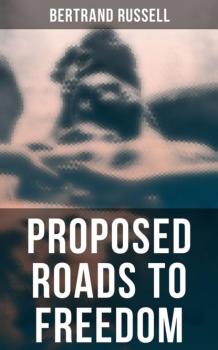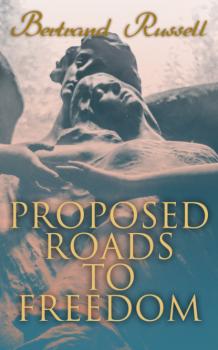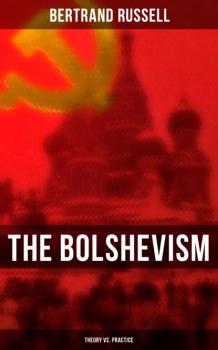Bertrand Russell
Список книг автора Bertrand RussellEl poder
¿Cuál es la clave para entender la naturaleza humana? Mientras que para Marx era la riqueza, y para Freud el sexo, para Bertrand Russell lo que define nuestra condición es el poder. No sólo es el objetivo último de nuestros actos, sino que constituye además el elemento más decisivo para el desarrollo de nuestras sociedades. A finales de la década de 1930, cuando diversas ideologías desgarraban a Europa y el mundo estaba al borde una guerra devastadora, Russell intentaba establecer una «nueva ciencia» que integrara saberes como la historia, la sociología y la filosofía para dar cuenta de los traumáticos acontecimientos de la época. El filósofo asumía el deseo totalitario de poder, pero mostraba que, sin embargo, existen otras formas de poder, más racionales e inteligentes, que pueden conducir a la paz. El resultado de sus reflexiones fue este libro extraordinario, una apasionada defensa de la independencia de espíritu y de la instintiva voluntad de armonía de los hombres, que sigue tan vigente hoy como el día en que fue escrita.
Proposed Roads to Freedom
Proposed Roads to Freedom is a philosophical treaty written by Bertrand Russell which explores the different ways of improving society with the aim to create a better life for everyone, a life that is aimed at creation instead possession. In a society structured around possession, such as the imperialist capitalism, people who own property can force the masses who own nothing or next to nothing to do whatever they want. In practice, this leads to violation of human rights and exploitation of men, women and children. Russell discusses movements and theories to change society in order to eliminate problems of capitalism. He considers and gives a detailed and informative overview of the systems of anarchism, syndicalism and socialism; and propounds his views as to the most desirable form of societal organization.
Proposed Roads to Freedom
Proposed Roads to Freedom is a philosophical treaty written by Bertrand Russell which explores the different ways of improving society with the aim to create a better life for everyone, a life that is aimed at creation instead possession. In a society structured around possession, such as the imperialist capitalism, people who own property can force the masses who own nothing or next to nothing to do whatever they want. In practice, this leads to violation of human rights and exploitation of men, women and children. Russell discusses movements and theories to change society in order to eliminate problems of capitalism. He considers and gives a detailed and informative overview of the systems of anarchism, syndicalism and socialism; and propounds his views as to the most desirable form of societal organization.
The Bolshevism: Theory vs. Practice
The Practice and Theory of Bolshevism is a work by Bertrand Russell dealing with the situation in Russia within a few years after the revolution and essential aspects of Bolshevik theory. The book is an excellent review of Communism in the early days of the Soviet Union. Russell is adherent to the communist idea, but points out some practical faults, which will be proven accurate in following years, leading to inevitable failure of the system. Thiscareful study provides a further insight to the movement in Russia, and a better understanding of Bolshevism.
Bertrand Russell: Problems of Philosophy
The Problems of Philosophy is a book by the philosopher Bertrand Russell, in which the author attempts to create a brief and accessible guide to the problems of philosophy. He introduces philosophy as a repeating series of (failed) attempts to answer the same questions: Can we prove that there is an external world? Can we prove cause and effect? Can we validate any of our generalizations? Can we objectively justify morality? He asserts that philosophy cannot answer any of these questions and that any value of philosophy must lie elsewhere than in offering proofs to these questions. Wittgenstein suggested further that these questions are empty and the value of philosophy is as an assistant to science.Focusing on problems he believes will provoke positive and constructive discussion, Russell concentrates on knowledge rather than metaphysics: If it is uncertain that external objects exist, how can we then have knowledge of them but by probability. There is no reason to doubt the existence of external objects simply because of sense data.
Roads to Freedom: Socialism, Anarchism, and Syndicalism
"Roads to Freedom: Socialism, Anarchism, and Syndicalism" by Bertrand Russell. Published by Good Press. Good Press publishes a wide range of titles that encompasses every genre. From well-known classics & literary fiction and non-fiction to forgotten−or yet undiscovered gems−of world literature, we issue the books that need to be read. Each Good Press edition has been meticulously edited and formatted to boost readability for all e-readers and devices. Our goal is to produce eBooks that are user-friendly and accessible to everyone in a high-quality digital format.
Our Knowledge of the External World as a Field for Scientific Method in Philosophy
"Our Knowledge of the External World as a Field for Scientific Method in Philosophy" by Bertrand Russell. Published by Good Press. Good Press publishes a wide range of titles that encompasses every genre. From well-known classics & literary fiction and non-fiction to forgotten−or yet undiscovered gems−of world literature, we issue the books that need to be read. Each Good Press edition has been meticulously edited and formatted to boost readability for all e-readers and devices. Our goal is to produce eBooks that are user-friendly and accessible to everyone in a high-quality digital format.









